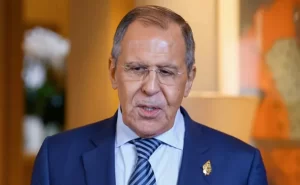Thich Nhat Hanh, Zen Buddhist monk, poet and peace activist who in the 1960s came to stand out as opposed to the Vietnam War, died on Saturday 95 years old, surrounded by his followers at the temple where his spiritual journey began.
“The international plum Buddhism community announced announced that his beloved teacher, Thich Nhat Hanh died peacefully at Tu Hieu Temple in Hue, Vietnam, at 00: 00 on January 22, 2022, at the age of 95,” said the official Twitter account.
In a magnificent body and public appearance that cover decades, Thich Nhat Hanh speaks in a soft but strong tone of the need to “run as if you kiss your feet”.
He suffered a stroke in 2014 which made him unable to speak and return to Vietnam to live his last days in the middle city of Hue, the ancient capital and his birthplace, after spending a lot of his adult life in exile.
As a pioneer of Buddhism in the West, he formed the monastery of “Plum Village” in France and talked regularly about the practice of attention – identifying and distancing themselves from certain thoughts without assessment – to the world of corporate and international followers.
“You learn how to suffer. If you know how to suffer, you suffer a lot, much less. And then you know how to take advantage of good suffering to create joy and happiness,” he said in college 2013.
“The art of happiness and art of suffering always walk together”.
Born Nguyen Xuan Bao in 1926, Thich Nhat Hanh was ordained a monk because of the modern Vietnamese established by Revolutionary Ho Chi Minh led efforts to free Southeast Asian countries from French colonial rulers.
Thich Nhat Hanh, who spoke seven languages, studied at Princeton University and Columbia in the United States in the early 1960s. He returned to Vietnam in 1963 to join the Buddhist agricultural conflict on the US-Vietnam war, which was shown by self-immolation protest by several monks.
“I see communists and anti-communists kill and destroy each other because each party believes that they have a monopoly about the truth,” he wrote in 1975.
“My voice sank by bombs, mortars, and shouting”.
Towards the height of the Vietnam War in the 1960s, he met the leader of the civil rights of Martin Luther King, who was persuaded to speak with conflict.
The king called Thich Nhat Hanh “Apostle of Peace and without Violence” and nominated it for the Nobel Peace Prize.
“I don’t personally know anyone who is more feasible than the Nobel Peace Prize rather than a soft Buddhist monk from Vietnam,” King wrote in his nomination letter.
While in the United States met the king a year earlier, the South Vietnamese government forbade Thich Nhat Hanh from returning home.
Biksu Haenim Sunim, who had acted as a translator of Thich Nhat Hanh during a trip to South Korea, said the Zen teacher was calm, attentive and loving.
“He is like a large pine tree, which allows many people to rest under his branches with the teachings of extraordinary attention and affection,” Haemin Sunim told Reuters.
“He is one of the most amazing people I have ever met”.
Thich Nhat Hanh’s works and promotions of the idea of attention and meditation have enjoyed new popularity as a world scroll from the coronavirus pandemic effect that has killed more than one million people and daily life.
“Hope is important, because it can make the moment the current less difficult to bear,” Thich Nhat Hanh. “If we believe that tomorrow will be better, we can bear the trouble today.
“If you can refrain from hoping, you can fully enter now and find the excitement that is already here.”






